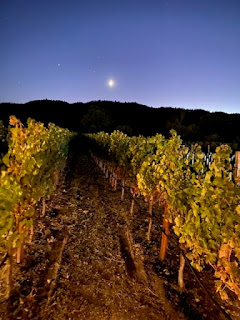Wine Appreciation
Pocklington and District u3a has had five Wine Appreciation groups. What does that tell us about the members? – they are all avid seekers of the truth of course, following Pliny the Elder’s statement in the first century AD that ‘in vino veritas est’. All groups meet in each other’s homes and enjoy interesting discussions along with their tasting although there are variations. One group compares different grape varieties, another has traditional tasting notes to accompany the sampling of three reds and three whites and other groups enjoy appraising the host’s eclectic choice of wines.
One group leader, John Senior, who is a wine enthusiast, says that discussion in Group 2 is often about current affairs and life in general and the troubles of the world are eased for a while by the relaxing and mellow atmosphere.
Pocklington and District u3a members are keen life-long learners and there is certainly a lot to learn about wine. As in every subject, the more you know, the more enjoyable the experience. Oenology is mainly the study of the science of wine-making but the study of wine can encompass history, geography, geology, botany, and economics and some wine experts even consider the study of wine as an art form equal to the study of music, art and literature.
No-one knows when or where the first vines appeared, although according to Genesis, Noah planted a vineyard. There is proof that in 125 BC there were vineyards near Narbonne in France - still an attractive wine producing area today.
One sip of wine can be very evocative – it can suddenly bring back happy memories of a special celebration or of visiting a certain vineyard, an ancient hilltop village or peaceful sunlit valley. It can arouse the senses and totally transport the imbiber to another place and time, just as in ‘A la Recherche du Temps Perdu’ Proust describes biting into a little madeleine cake and being instantly transported back to the past.
Enjoying wine responsibly is an aesthetic experience which can stretch the mind, stimulate sensation and greatly contribute to social wellbeing.



Comments
Post a Comment